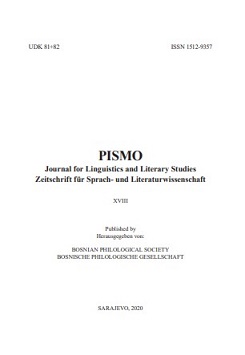Dekonstrukcija orijentalističkog diskursa u putopisima Zuke Džumhura
Deconstruction of Orientalist Discourse in Zuko Džumhur’s Travelogues
Author(s): Adisa AhmetspahićSubject(s): Bosnian Literature, Sociology of Culture, Identity of Collectives
Published by: Bosansko filološko društvo
Keywords: deconstruction; Orientalism; travelogue; Džumhur; stereotypes;
Summary/Abstract: The person and work of Zuko Džumhur are usually associated with the TV show Hodoljublja released in 1982 in former Yugoslavia. Džumhur’s creative output is marked by a collection of travelogues in which he offers a rich and picturesque account of different cultures and peoples from his journeys across Africa, Asia, and Europe. In his travelogues, there is a hint of the postcolonial discourse that is used to examine the ideological determinants of imperialism, such as the Orientalist discourse. Orientalism as a discursive practice refers to Western representation or stereotypes of the Orient, which Edward Said wrote about in his study Orientalism. These stereotypes present the Orient as an exotic, mystical, and dependent area. Džumhur’s travelogues, especially Letters from Asia and Letters from Africa, deconstruct Orientalism through humor and intermediality, and dismantle it as a fabrication. This paper offers some examples of Džumhur’s deconstruction of the Orientalist discourse, relying on postcolonial and postmodernist critical theories (Said, Lyotard, Gramsci, Foucault), that may assist in understanding the construction of knowledge which has an oppressive function, as is the case with Orientalism.
Journal: Pismo - Časopis za jezik i književnost
- Issue Year: 2020
- Issue No: 18
- Page Range: 144-162
- Page Count: 19
- Language: Bosnian

